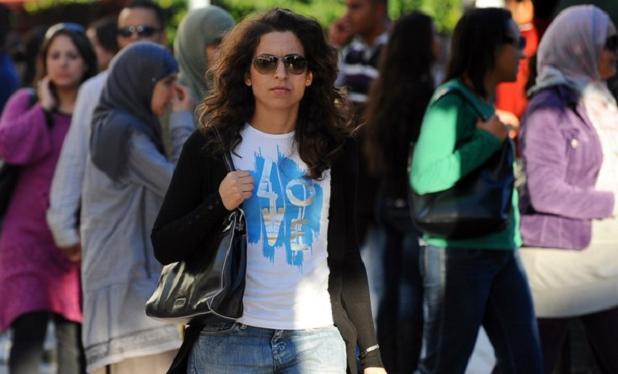Tunisian Election Law Gives Women Equal Chance

Tunisia has led the Middle East on women’s rights and toppling autocracy. Now women are in line to run for office in equal numbers as men in the first elections. The threat of rollbacks and reversals also lurks.
In the next few months, Tunisian women may have a real opportunity as candidates and voters to participate in the country’s new, post-revolution, electoral system.
With hope, this will lead to more women in decision-making roles in government and a chance to demonstrate that democracies flourish when women, and the special experience and viewpoints they bring to the process, are included.
But nothing is certain in democracy, and particularly one in formation.
Tunisia was one of the first few countries in the Middle East region to adopt a constitution in 1959 and now it has a chance to lead the region in writing the best post-revolutionary constitution for women.
It could happen. After all, Tunisia led the Middle East into revolution this year and has been a famous regional leader for women’s rights as well.
Tunisia’s laws have provided women a measure of equality largely absent among its neighbors. Polygamy is banned and Tunisian women have equal rights in marriage and divorce. The minimum age for marriage is 18 for both spouses and both must consent to the marriage.
Discriminatory Laws Exist
Still, Tunisian women do face discriminatory laws, such as in inheritance. Tunisia also does not have a comprehensive law on family violence, though it has some very strong provisions in its penal code criminalizing domestic abuse and marital rape. These laws, however, are not always adequately enforced.
Many women’s rights activists, while excited about the political change that has taken place since the January revolution that ousted President Zine El Abidine Ben Ali, are also concerned that ground could be lost.
Since January numerous political parties–over 80 and counting–have sprung up and even some that were banned under the previous government are making a comeback. While that kind of political diversity can be a healthy sign of democracy and freedom, it carries peril for women as well.
In March, for instance, An-Nahda, an Islamist party, said it would not support a review of Tunisia’s discriminatory personal status laws, which govern such matters as marriage, divorce, custody and inheritance, because the Quran was clear on matters of equality between men and women.
That same month, in celebration of International Women’s Day, some Tunisian women’s rights activists drafted a wish list for an egalitarian constitution. They stressed gender equality and ensuring basic rights and freedoms for all citizens without discrimination.
Inheritance Laws Concerning
The laws on inheritance are of particular concern. Women and girls are still not entitled to an equal share of their fathers’ and husbands’ estates. Brothers get more of the share, and sometimes inheritance can be divided among other relatives, such as male cousins, leaving girls and women with a much smaller amount.
When the women’s rights activists drafted their constitutional wish list in March, many people at the time thought their proposals were unrealistic.
But in April, the electoral commission established to draw up rules for the constituent assembly elections, slated to take place on Oct. 23, took a huge step and adopted a gender-parity system for candidate lists for the constituent assembly.
This required political parties to alternate men and women on their lists from top to bottom. The electoral commission can reject a party list that does not adhere to this rule.
For women’s rights this is a huge win.
This measure will make it more likely that women will have a significant seat at the table when Tunisia’s next constitution is written and will help sets the rules for the presidential and parliamentary elections that will follow.
Source:Women’s eNews







